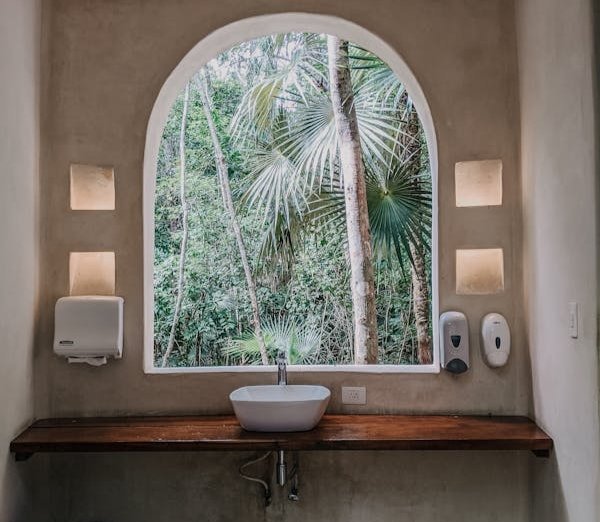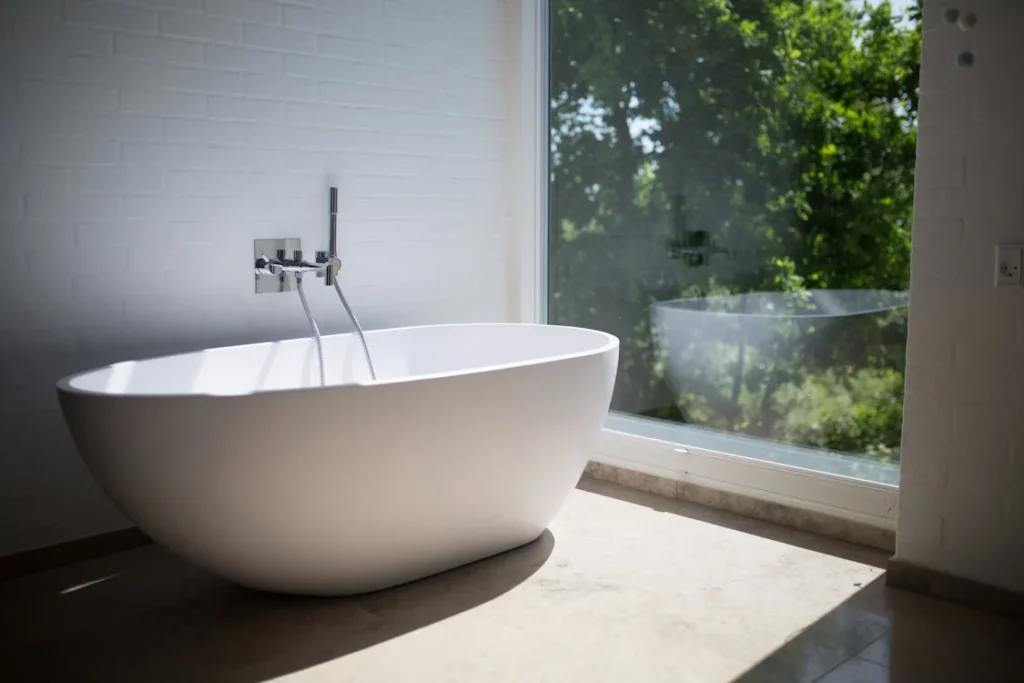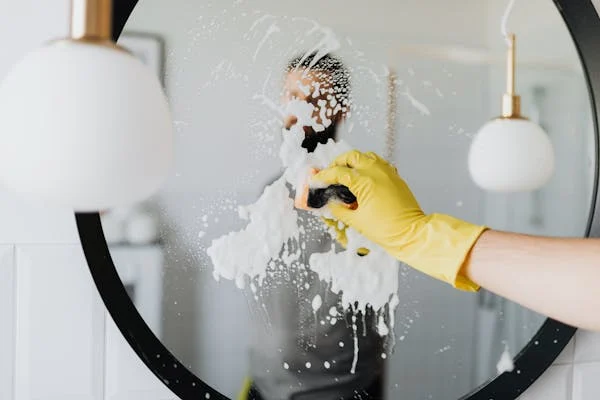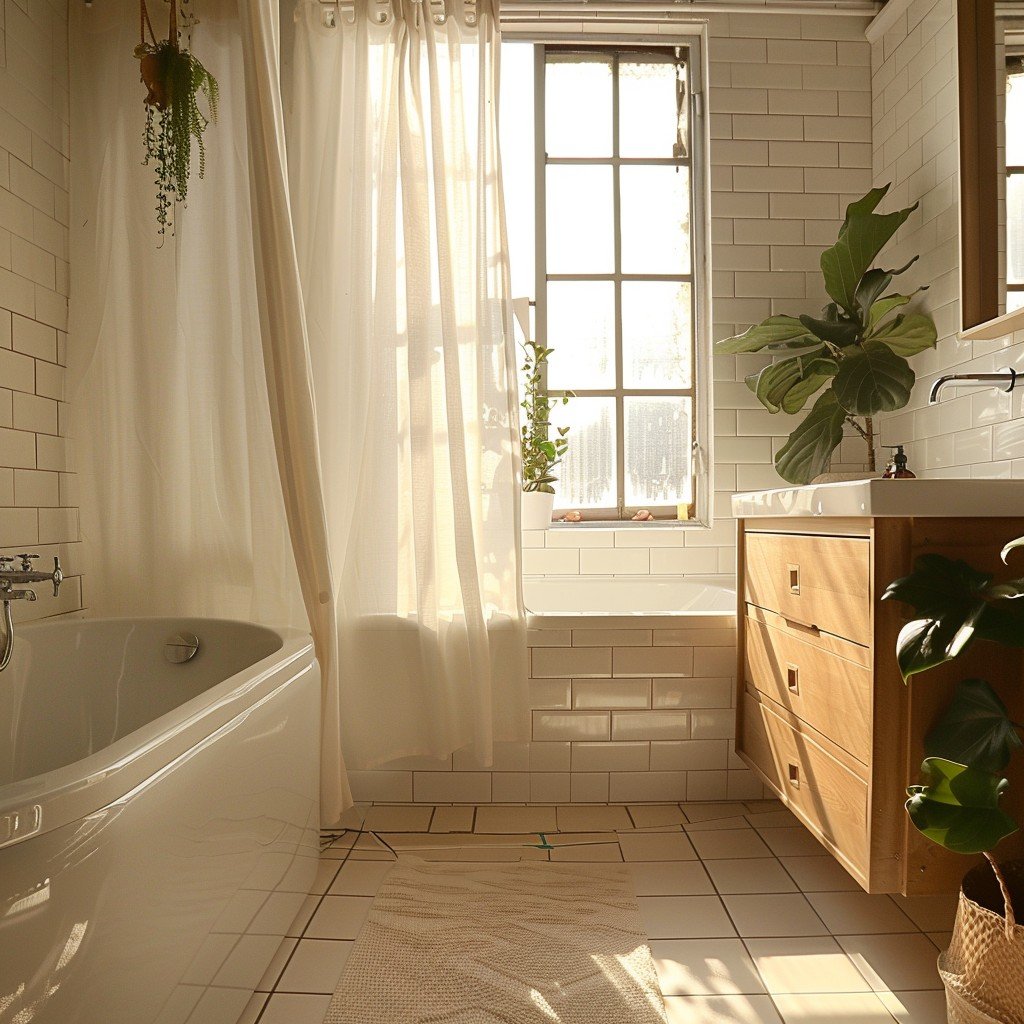
It is important to have a shower curtain in the bathroom to prevent splashing of water during your bath or to protect privacy. A perfect shower curtain, besides fulfilling its functionality, can also enhance the beauty of the bathroom and is long-lasting. But if you don’t know how to choose a right curtain, then there is no reason to worry. We will teach you how to choose the right shower curtain. Let’s find out then:
Understanding the Role of a Shower Curtain
Before choosing a shower curtain, you need to know about its requirements. The main function of a shower curtain is to maintain privacy while bathing and prevent shower water from splashing onto the floor so that the bathroom remains dry. Moreover, due to the excellent design of the shower curtain, the beauty of the bathroom can come out in many ways.
Types of Shower Curtains
Shower curtains are of different types and accordingly, their functionality is also different.
1. Cotton Shower Curtains
Cotton shower curtains are a popular choice due to their excellent design. Ordinary cotton is made naturally. And the fabric is made with that cotton.
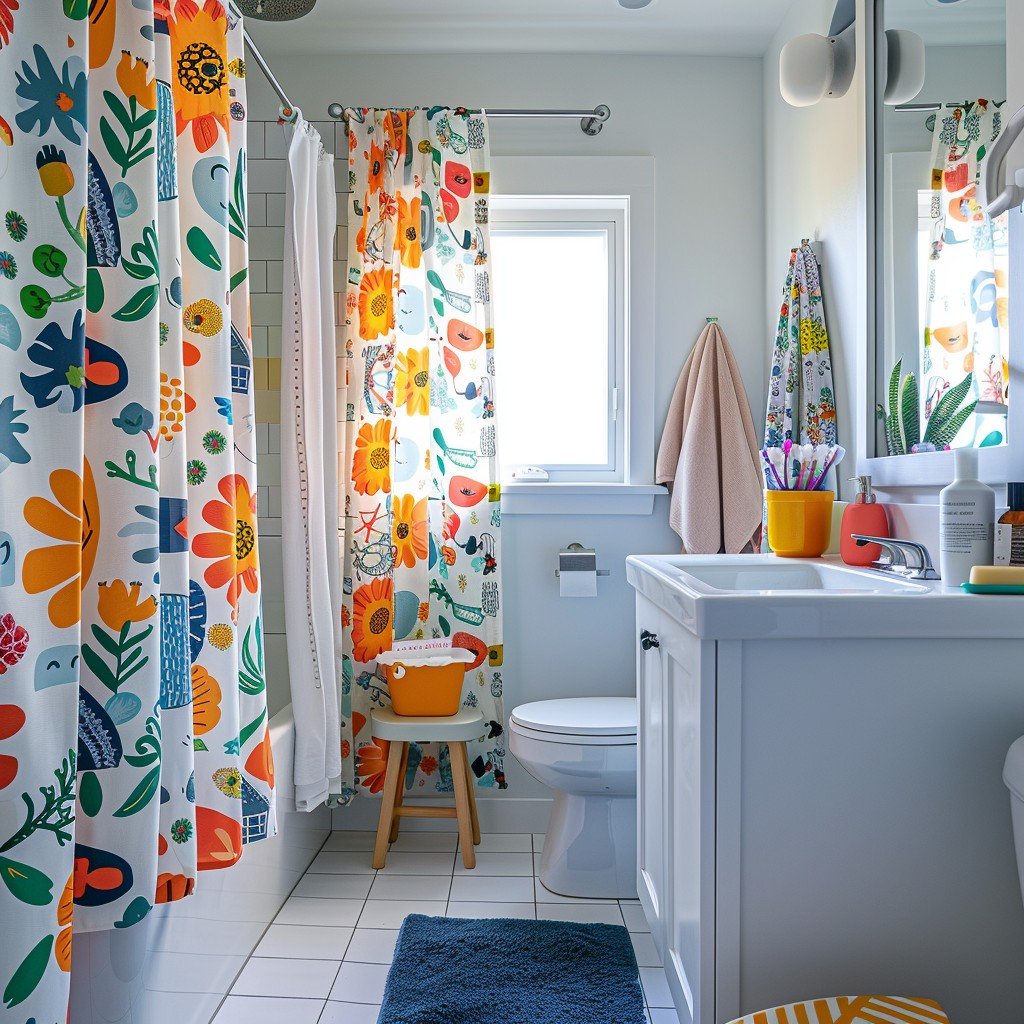
Advantages: Shower curtains made of cotton are of various colors and designs. As a result, they easily fit into any bathroom design. You don’t have to worry about their durability. Because cotton curtains are more durable and long-lasting than plastic curtains. They can withstand daily use very easily and can be used for a long time. Moreover, cotton is 100% eco-friendly as it is made naturally and is easy to maintain. Generally, most curtains are machine washable. Cotton is softer than plastic curtains, making it more comfortable to use.
Considerations: Although the cost of cotton curtains is slightly higher than plastic curtains, cotton can be used for a long time compared to plastic. Another thing to keep in mind is that not all cotton shower curtains are water-resistant. To mitigate this, you need to use liner. So be aware of this while choosing. Fabric curtains get dirty easily and need frequent washing.
2. Linen Shower Curtains
Fiber from the stems of the flax plant is used to make linen. Linen is made from this fiber by the process of spinning. First, the flax plant is harvested, and then the ratting process is carried out to separate the fiber. The fibers are then spun into linen curtains.
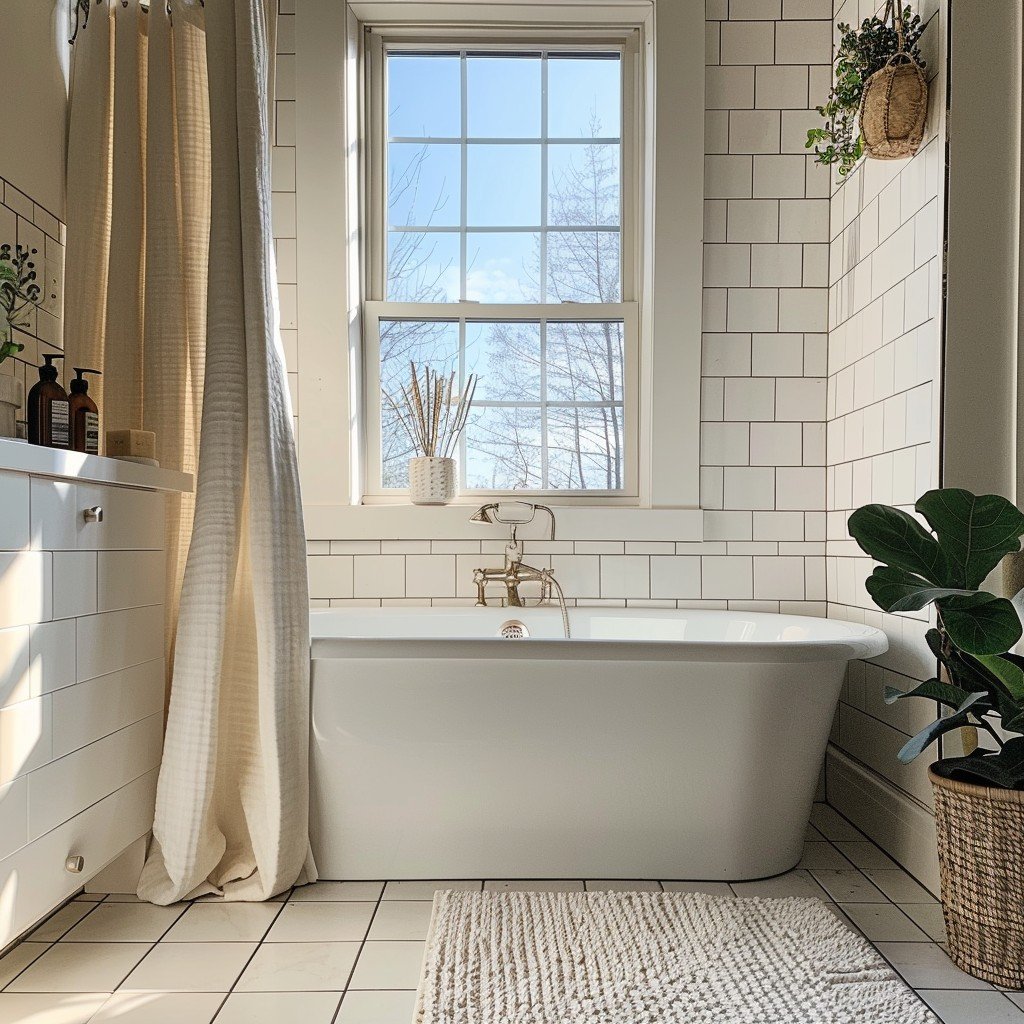
Advantage: Linen curtains are available in various colors and patterns, which can enhance the beauty of any bathroom. Linen curtains allow for very good airflow. As a result, they are perfect for use in bathrooms where the temperature is slightly higher. Although linen curtains are light and breathable, they are surprisingly strong and durable. Over time, linen becomes softer and more comfortable while maintaining its functionality. Made naturally, linen is 100% eco-friendly. Moreover, they are machine washable for easy cleaning.
Considerations: The downside of linen curtains is that they cannot resist water like plastic or polyester curtains. That’s why a waterproof liner has to be used behind the screen. The linen curtains wrinkle. Therefore you may need to use iron. Moreover, linen tends to be more expensive than synthetic materials. Over time, linen may fade or change color slightly due to exposure to water and sunlight. So keep away from direct sunlight. Although new linen curtains may be a bit stiff or coarse, they usually soften with use and washing. But the good thing is that the screen is soft and comfortable to use.
3. Vinyl or Plastic Shower Curtains
Curtains made of vinyl or plastic are preferred by many for their functionality and affordability. They are made from synthetic materials like PVC or EVA. They can also be called Synthetic shower curtains.
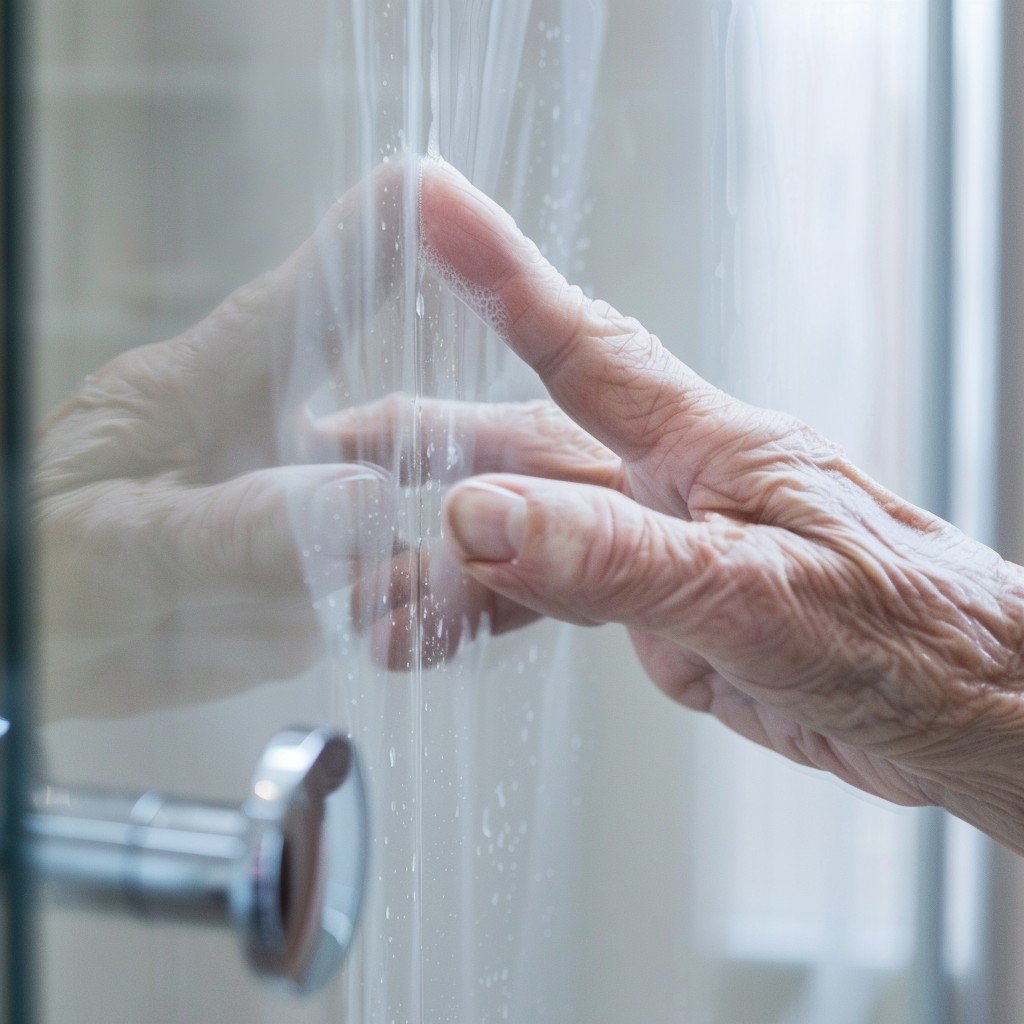
Advantage: Vinyl and plastic curtains can be inherently water-resistant. As a result, there is no possibility of water leakage. Many plastic and vinyl shower curtains have a built-in waterproof lining or coating, which makes water resistance even stronger. They also do not need liners like fabric. Vinyl and plastic curtains are not as prone to staining as fabric curtains, so do not require as much cleaning. When cleaning is necessary, it can be cleaned with a damp cloth or sponge. These curtains are made to withstand humid environments and frequent use.
Considerations: Vinyl and plastic curtains are not environmentally friendly. They are made from petrochemicals, which are harmful to the environment. On the other hand is not biodegradable and may take a long time to decompose. Although initially durable, after long-term use it slowly begins to corrode. Especially if exposed to high heat or prolonged sunlight. Moreover, they do not have much design like fabric. Some vinyl screens contain phthalates or other chemicals that can be harmful if released into the air. In that case, you need to be aware of choosing screens that are free of phthalates or harmful chemicals.
4. Polyester Shower Curtain
Curtains made of Polyester are known for their long-lasting performance and beauty. Polyester is a synthetic polymer. Which can easily be called a type of synthetic fabric.
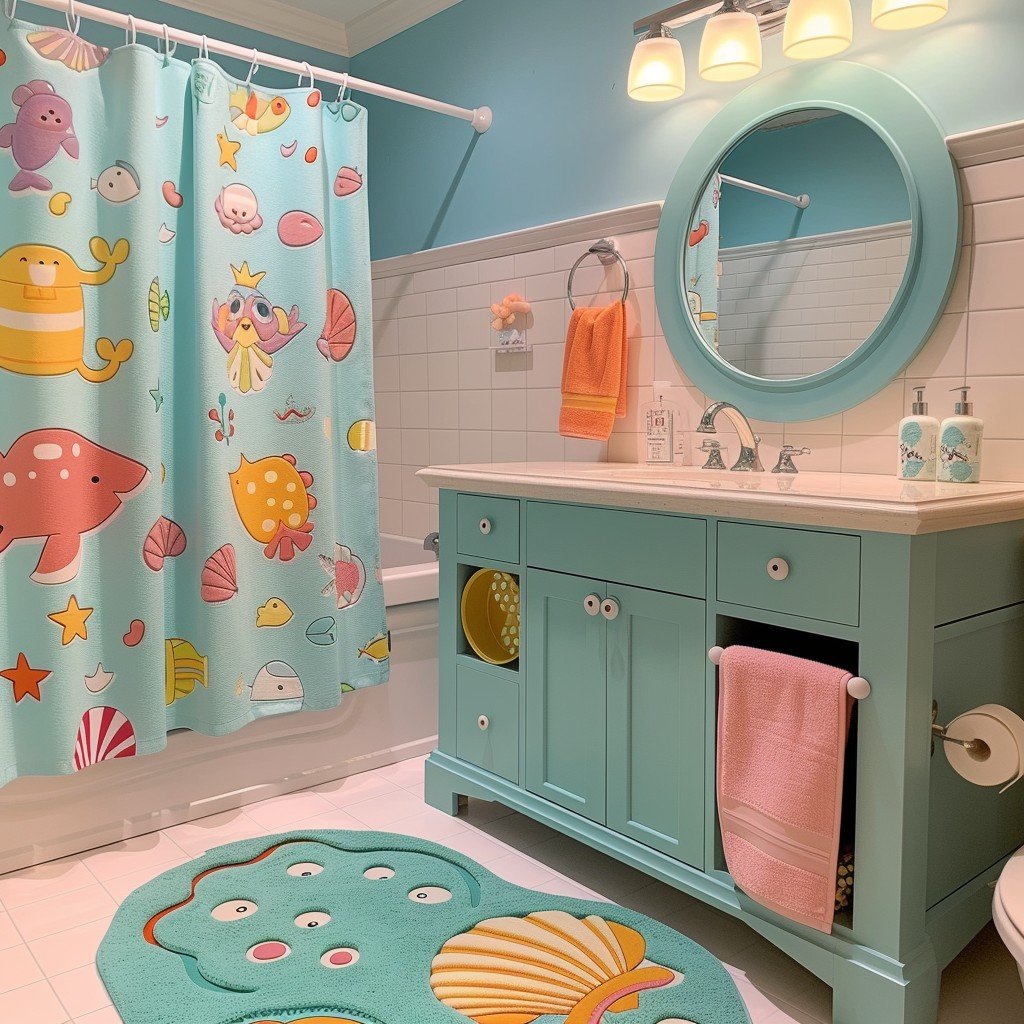
Advantage: Polyester shower curtains are water-resistant. As a result, water can’t spill on your bathroom floor and the floor stays dry. Most polyester shower curtains are machine washable, making the cleaning process easy. They come in a variety of colors and designs, so no matter the design of your bathroom, they easily fit into the bathroom environment. Polyester is a durable fabric that easily adapts to the wet environment of the bathroom and can last for a long time. Polyester curtains usually dry faster than cotton, so the curtains stay dry.
Considerations: Although polyester is water-resistant, it is not completely waterproof. This means that, over time, the polyester can become damp, especially on the underside of the curtain. If your screen has this problem then use a waterproof liner. Polyester can sometimes stick to the body or walls when wet. Moreover, polyester is a synthetic material, which is made from petroleum-based products. So it is not 100% environment friendly. It is not biodegradable and is polluting the environment due to its manufacturing process. New polyester curtains may emit a chemical odor when first purchased. The smell does go away after a few washes though.
Size and Measurement
To choose a perfect shower curtain, after deciding on the material of the curtain, you need to decide on the size and measurement.
1. Measure Your Shower Area
Measure the width and height of your shower area to determine the correct screen size. Each screen comes with some instructions at the time of purchase, you need to read those instructions to determine the length and width of the screen.
Width: Measure the width of the shower or bathtub area. Make sure the curtain you choose will be wide enough to cover the entire area with some overlap around it.
Height: The standard height of a screen is usually around 72 or 84 inches. However, if you need a higher screen height, you may need to customize the screen height.
2. Consider the Curtain Rod
The curtain rod installation process can affect the performance of the curtain. Make sure that the rod is installed at the correct height and that it does not cause any problems in using the screen.
Materials and Care
1. Cotton Shower Curtains
Cotton shower curtains are usually machine washable. Use a small amount of detergent with cold or warm water on a gentle cycle in the machine to sun damage to the screen. Leave the screen to air dry. Excessive resistance may cause the screen to shrink or thin. Use a stain remover to remove stubborn stains without scrubbing too hard.
2. Linen Shower Curtains
For linen curtains, machine wash in cold water on low pressure. Remember that harsh washing can damage the linen. After washing it is best to air dry the curtain. Since linen wrinkle easily, if ironing is required, iron the curtain slightly damp using the medium setting of the iron.
3. Syntactic Shower Curtains
Syntactic fiber curtains refer to curtains made from plastic, vinyl, and synthetic materials like PVC or EVA. Most synthetic curtains are machine washable for easy cleaning. Machine wash with mild detergent and cold water. Remember, bleach cannot be used, as bleach can damage synthetic fibers. Scrub gently with a soft brush or cloth using a mild detergent to remove tough stains.
4. Polyester Shower Curtains
Polyester curtains are usually machine washable. In that case you need to run the machine with water and low pressure. It is better to use less detergent to avoid fabric damage. Use a stain remover to remove stains from the screen. Polyester dries quickly, so avoid over-drying. Otherwise, the screen may wrinkle.
Not every screen is made the same way. Due to the difference in their manufacturing process, the screen cleaning process may also differ. So the instructions attached to the screen to properly clean and perpetuate the Durga were not read properly.
Environmental and Health Considerations
Finally, you can choose curtains keeping in mind the environment-friendly and health-conscious aspects. Look for curtains made from non-toxic, low-VOC (volatile organic compounds) materials, especially if you are sensitive to chemicals. In that case you can use curtains made from natural materials, they are health friendly as well as environment friendly.





